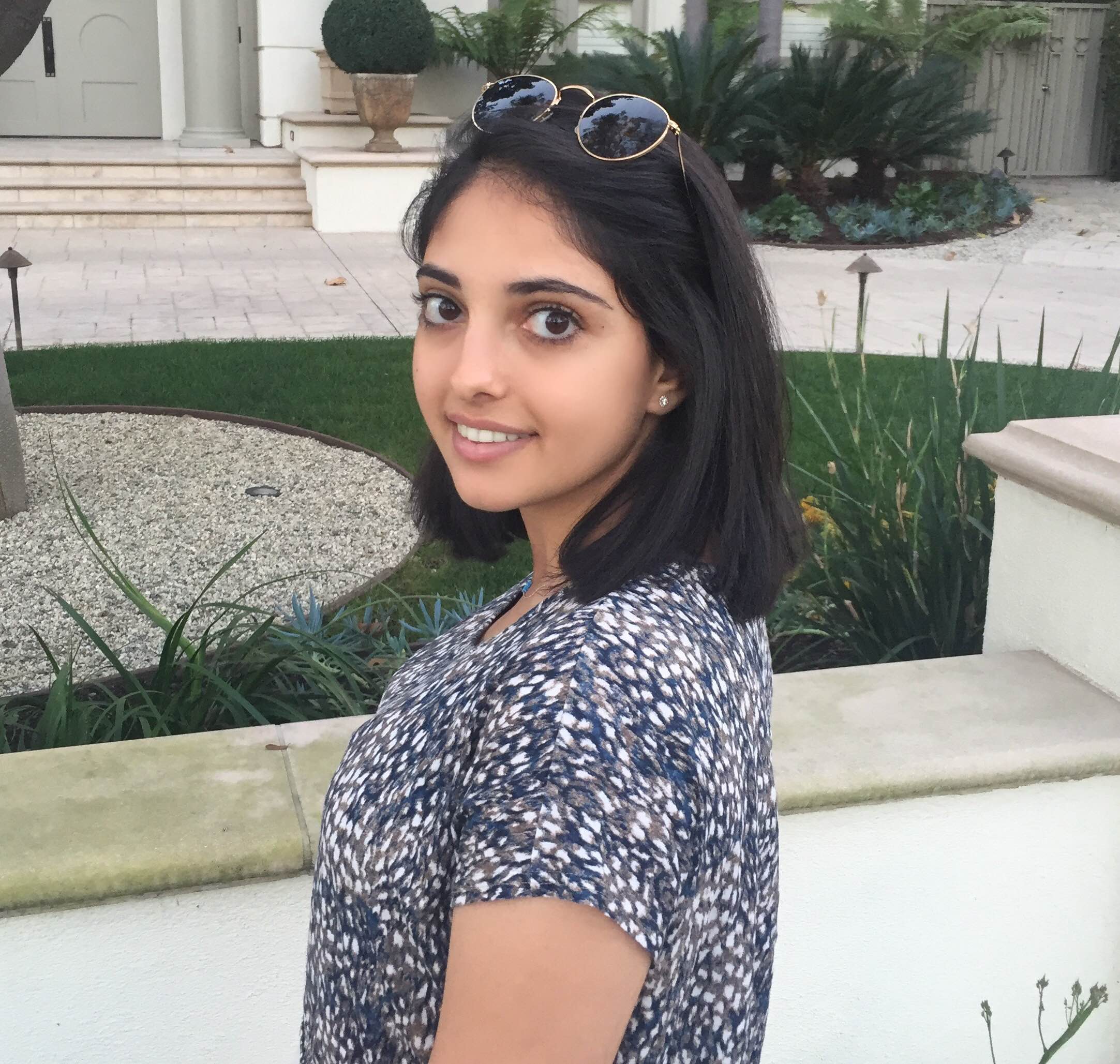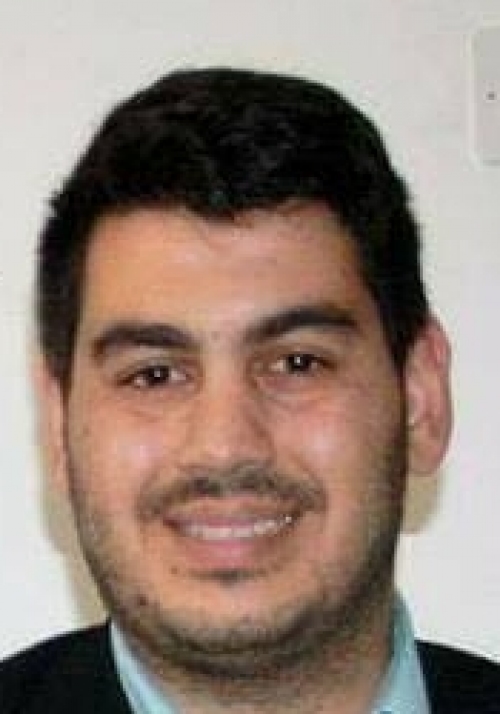
“If we are courageous enough, we can work together,” said Jonathan Elkhoury, a member of the Committee for Accuracy in Middle East Reporting in America (CAMERA) brought to campus on Tuesday by Judges for Israel, an Israeli education and culture group, and co-sponsored by StandWithUs and the Zionist Organization of America.
“Unlike many people who try to divide the land, Jonathan Elkhoury portrayed a powerful message about unity and coexistence,” said Jenna Nimaroff ’19 of the presentation.
Elkhoury is a 24 year old Christian, gay and Lebanese man who found refuge in Israel. He was born in South Lebanon, where his father was a soldier in the South Lebanese Army. His father fled Lebanon in 2001 when Israel removed its forces due to Hezbollah assassinating the commander of SLA’s Western Brigade and proceeded to harass Israeli troops in the territory. Elkhoury was left behind with his mother.
Elkhoury and his mother struggled to leave Lebanon and reunite with his father because his mother, as a woman, had few rights in Lebanon. Single motherhood is frowned upon in Lebanon, and government organizations make sure to not assist them for fear of being seen as supporting sexual relations out of wedlock. In order to receive visas from the government, his grandfather had to lie, and say that Elkhoury’s father was abusive and was out of their lives for good.

August of 2001, Elkhoury, his brother and his mother left Lebanon. No one, including their family, knew that they were leaving. He himself did not know that they were leaving the country as he followed his mother clutching two teddy bears. They had to act as if they were going to Cyprus on vacation and his mother knew that she would not be able to contact anyone left behind.
When they arrived in Cyprus there was a man who had his father’s phone number and helped them acquire visas and tickets to get to Israel. When the journey was over they were in Nahariya. “Just 1.5 miles away from the Lebanese border,” they were reunited with their father after having no contact with him for over a year and half, explained Elkhoury.
The Israeli government provided financial assistance and citizenship to Elkhoury’s family as well as the about about 2,500 Christian refugees that they took in from Lebanon. Eventually Elkhoury’s family was able to move to Haifa, a mixed city with a multicultural population of Jews, Bahá’í, Muslims, Christians and others living together in peace.
However, when choosing a school, the Arab population rejected Elkhoury because he was a Lebanese and his family did not support Hezbollah. Instead he went to a Jewish school that welcomed him with open arms and made it their mission to make sure that he learned Hebrew and was integrated with the rest of the school. Within three months, he was speaking fluent Hebrew.
In 11th grade, just as other minorities in Israel, he was asked whether or not he wanted to join the army. Without knowing that Israel is accommodating and no units are barred, he did not join the army from fear of not being accepted because of his sexuality. Instead he chose to contribute to his country through National Service by volunteering in Haifa.
At a school in Acre where he was volunteering, someone asked why he ran from Hezbollah. When he stated his disapproval of Hezbollah and Hassan Nasrallah, the leader of Hezbollah since 1992, Elkhoury was verbally attacked and had to run out of fear.
These people, he explained, refuse Israeli society, and feel that where they come from is their only identity. He quoted Gabriel Nadaf, “We are all rooted in this land, and we as Christians have the responsibility to be involved in protecting Israel, our lives, freedom, our home and our identity. It is our right to rise, volunteer and protect the holy land and Israel.”
Just as Nadaf preaches for the Christian community, Elkhoury supports this idea even more generally.
Elkhoury emphasized the importance of integrating into Israeli society and working among its citizens to make a change. “Israel is not perfect, no country is, and we are doing our best to make it even better,” he added. One can be a proud Arab-Israeli. The two are not mutually exclusive. In fact, about 70 percent of Arabs in Israel consider themselves both Israeli and Arab but are too afraid to speak up, said Elkhoury.
“With his chutzpah and liveliness, Jonathan embodies all the traits of a sophisticated and strong individual living in a complex and diverse society,” Ron Gadot ’18 said about the speech.
“Elkhoury shed a light on aspects of Israel that are not commonly discussed. Stories like Elkhoury’s can help people better understand the difference of the living as minority in Israel versus other middle eastern countries,” said Erin Chambers ’20, who was also at the speech.
The way to really make a change is to be proud of being Israeli and work to make a difference through society, said Elkhoury at the conclusion of his speech. Just as he was included at his school, Elkhoury wishes that all Israelis including Lebanese, Christians and Muslims to be one unit, living together and supporting each other.
Originally published at the “Brandeis Hoot” – Brandeis` Campus Newspaper
Contributed by Aviya Zarur, CAMERA Fellow at Brandeis University, and First Year representative for Judges for Israel, a CAMERA-affiliated group.

